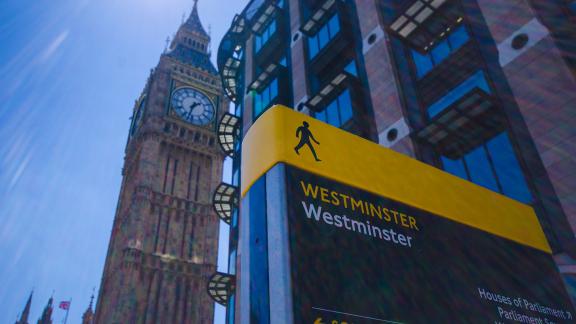New health secretary urged to press on with the NHS Bill or risk derailing vital reforms

The new Secretary of State has been warned that any delay to the publication of the forthcoming Health and Care Bill before Parliament’s summer recess risks derailing critical elements of the Government’s NHS reforms.
The Bill had been expected in the last week of June, but it is now unclear when it will be published, leaving just three weeks to go before Parliament closes for the summer and when the Bill would need to be by tabled by in order to have its second reading.
In a letter to Sajid Javid, the NHS Confederation, which represents the whole health system in England, Wales and Northern Ireland, has warned that any delays beyond mid-July will mean that key aspects of the reforms will not be ready before integrated care systems (ICSs) are timetabled to become statutory bodies in April 2022.
The leaders of ICSs, which the NHS Confederation represents, are concerned that any delays will distract from their real purpose of focusing on population health and delivering effective integration across the NHS and social care, widely supported elements of the Government’s reforms.
ICS leaders fear there is a real risk that vital momentum will be lost, especially following the COVID-19 pandemic, which has shown the importance of integrating services and uniting in a common cause.
There are several key concerns, which include:
- ICS leaders need to secure their governance arrangements, including appointing to key roles such as chairs. These roles are due to be advertised shortly and in place by October, but if the Bill is delayed until the autumn, this will not be possible.
- A number of local systems are also awaiting the outcome of important decisions on changes to their boundaries. The former Secretary of State for Health and Social Care, Matt Hancock, had set out his wish that all areas adopt boundaries that are coterminous with their upper tier local authorities. If this change were to be enacted, it would require significant changes to local services in some parts of the country and those ICSs affected would need time to adapt to this change before April 2022.
- The impact of any delay on staff, as many senior staff working in Clinical Commissioning Groups are unsure of their futures and are not protected by the employment commitment published in June 2021. They will need to be assured as to whether their jobs remain well before next April.
NHS Confederation chief executive Matthew Taylor said:
“A slight delay in the legislative timetable is understandable, given we have a new health secretary, with a huge amount on his plate. But if a delay of a few days turns into a delay of a few weeks, this will risk derailing the reforms and risks leaving us in flux at a pivotal moment. At worst, it could set us back a year and lose the vital momentum NHS leaders and their colleagues in social care have built up both prior to and during the pandemic. After coming so far, it would be the equivalent of clutching defeat from the jaws of victory, so while we recommend that Mr Javid takes stock, we urge him to move quickly to publish the Bill.
“There is much consensus that this is the right direction of travel. Seven in 10 of our members who responded to a survey we are due to publish shortly said they support the proposals outlined in the White Paper. This view has been bolstered by the pandemic, which has shown the importance of integrating services and uniting in a common cause, including working together to tackle long-standing health inequalities.
“However, we can only really do this by breaking down barriers between services and working in partnership across health and care services, and the planned legislation will helpfully take this one step further.”
Gill Morgan, chair of the NHS Confederation ICS Network Advisorate, said:
“I have said for some time now that April 2022 needs to be seen as the start for many ICSs, not the end point, so let’s be realistic about where systems will land. However, those affected by boundary changes do really need decisions soon, and ICS chairs do need to be appointed. Most importantly, we need both NHS England and the Government to work hand-in-hand with ICS and CCG leaders to make this next stage a success.
“ICS and CCG leaders are working hard to meet what is already a tight timetable and one that could become much tighter if there are any significant delays. We need a pragmatic and realistic approach that keeps the show on the road, and allows leaders to get on and do what they need to do. Integration and working together is a culture that many ICSs already live in, not just a legislated change, and this will develop beyond April 2022.”
The NHS Confederation has also reiterated its concerns about the potential for greater centralisation of power in the Government’s reforms, particularly when it comes to the role of the health secretary in overseeing local service reconfigurations. In its letter to Mr Javid, the membership body encourages him to look again at this specific issue, which has been a long-standing concern of the Confederation and its members.
About us
We are the membership organisation that brings together, supports and speaks for the whole healthcare system in England, Wales and Northern Ireland. The members we represent employ 1.5 million staff, care for more than 1 million patients a day and control £150 billion of public expenditure. We promote collaboration and partnership working as the key to improving population health, delivering high-quality care and reducing health inequalities.



